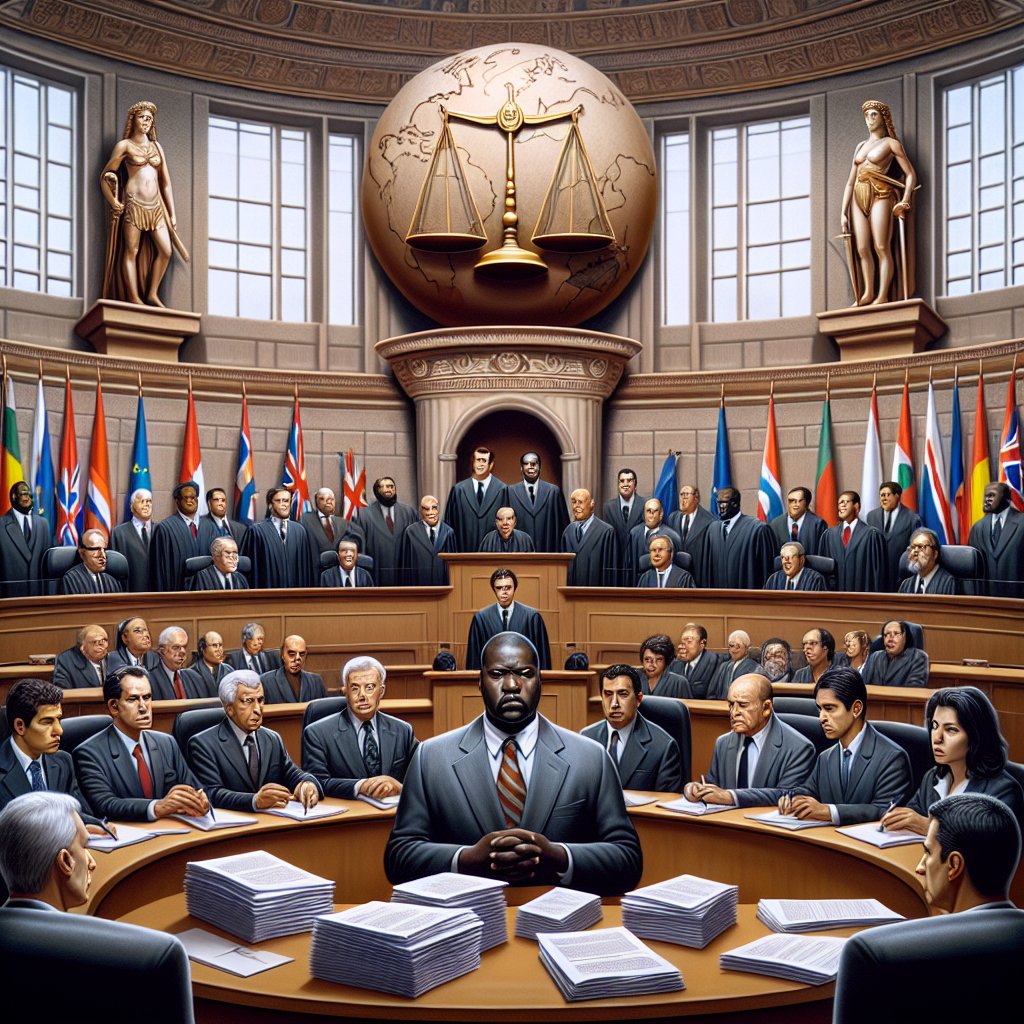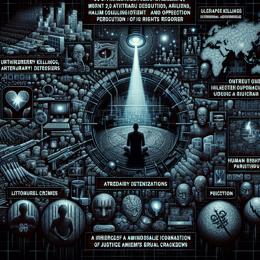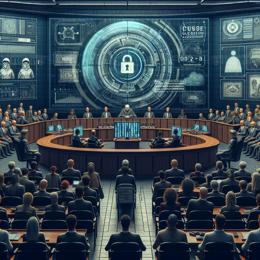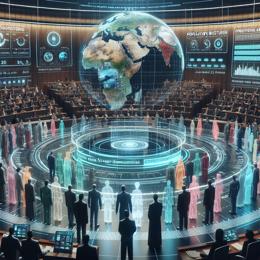Content created by AI
South Africa's ICJ Appeal Accuses Israel of Genocide Amid Condemnation of Hamas Attacks
In a move that has international ramifications, South Africa has brought forward an urgent application to the International Court of Justice, located in The Hague, the Netherlands. The application, filed by the Department of International Relations and Cooperation, is pushing for a declaration that Israel has breached its obligations under the Genocide Convention in its actions against Palestinians in Gaza. This bold step is not without complexities; as South Africa makes this accusation, it has also been careful to condemn the militant group Hamas for its attacks on Israeli civilians.
The case presented by South Africa is built around concerns pertaining to the long-standing Israeli-Palestinian conflict. In their application, South African authorities are imploring the ICJ to recognize that Israel's measures against Palestinians in the Gaza Strip could constitute genocide and, as such, be in direct violation of the Genocide Convention – a body of international law designed to prevent and punish acts of genocide.
What makes South Africa's stance particularly noteworthy is the simultaneous condemnation of the violence perpetrated by Hamas. This balanced approach indicates a nuanced understanding of the conflict, where both Israeli security concerns and the rights of Palestinians are taken into account. However, the focus remains firmly on the plea for international judicial intervention regarding Israel's activities.
The response from Israel was swift, with Israel's Ministry of Foreign Affairs decrying South Africa's actions. Israel maintains that the claim is unfounded and has called on both the ICJ and the wider international community to outright reject South Africa's application. The Ministry's statement suggests a belief that South Africa is cooperating with what Israel considers to be a terrorist organization, thereby alleging that South Africa's actions lend support to such groups.
What follows from South Africa's application – and Israel's condemnation of it – is a likely escalation of diplomatic tensions between the two countries. The case represents not just a legal challenge, but also a broader question of how nations interpret and respond to actions they see as violations of international law. As the world watches, the ICJ's handling of this application will stand as a testament to the role of international courts in mediating conflicts between states and within contested territories.
South Africa's decision to approach the ICJ also demonstrates the country's growing engagement with international jurisprudence and its willingness to invoke legal instruments to address what it sees as critical human rights issues. Regardless of the outcome, this action highlights South Africa's stance on global justice and its advocacy for the rule of law in international relations.
The proceeding at the ICJ will attract considerable attention from nations around the world, many of which have a vested interest in the Israeli-Palestinian conflict. This case could set a precedent for the future of international conflict resolution and the enforcement powers of global legal institutions.
As South Africa awaits the ICJ's decision on its urgent application, the world awaits the resulting impact on both legal and diplomatic fields. It is a moment that will potentially redefine international accountability and influence nations in their conduct – not just in the Middle East, but across the global stage.










